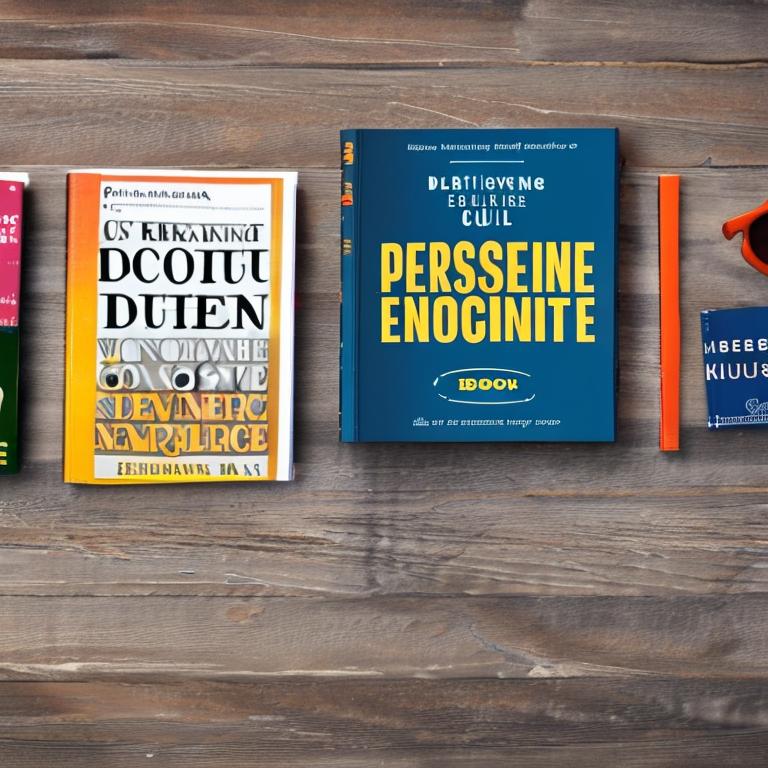Exploring the World of Literature and Publications
Literature and publications play a significant role in shaping our understanding of the world and enriching our cultural experiences. Through the exploration of various literary works, individuals can delve into different time periods, cultures, and perspectives, gaining valuable insights into the human experience and the complexities of life. From classic novels to contemporary poetry, literature offers a diverse range of genres and styles that cater to different tastes and interests. One of the key benefits of exploring literature is the opportunity to empathize with characters and situations that may be vastly different from our own. By immersing ourselves in the narratives of others, we can develop a deeper sense of empathy and understanding, fostering connections with people from diverse backgrounds and cultures. Literature has the power to transcend boundaries and bridge gaps, creating a sense of shared humanity that unites us all. Moreover, literature serves as a mirror that reflects the society and culture in which it is produced. Through the study of literary works, individuals can gain insights into the values, beliefs, and social norms of different time periods and regions, providing a window into the past and a lens through which to view the present. By exploring literature from various eras and regions, we can gain a more nuanced understanding of the complexities of human society and the forces that shape our world. Publications, including magazines, journals, and online articles, also play a crucial role in keeping us informed and engaged with current events and trends. Whether it is through in-depth analysis of political issues, cultural commentary, or scientific discoveries, publications provide a wealth of information that helps us stay up-to-date and informed about the world around us. By exploring a diverse range of publications, individuals can broaden their perspectives, challenge their assumptions, and engage critically with the information presented to them. In conclusion, exploring the world of literature and publications offers a rich and rewarding experience that enhances our cultural awareness, empathy, and intellectual curiosity. By engaging with literary works and staying informed through publications, we can expand our horizons, deepen our understanding of the world, and enrich our lives with the diverse voices and perspectives that literature and publications have to offer.
The Role of Newspapers and Periodicals in Keeping Us Informed
Newspapers and periodicals have long been essential sources of information, providing readers with news, analysis, and commentary on a wide range of topics. In today's fast-paced world, where information is constantly evolving, newspapers and periodicals play a crucial role in keeping us informed about current events, trends, and developments both locally and globally. One of the key functions of newspapers is to report on breaking news and events as they unfold. Whether it is political developments, economic trends, or social issues, newspapers provide timely and accurate information that helps readers stay up-to-date with the latest happenings in their communities and around the world. By delivering news in a timely manner, newspapers enable readers to make informed decisions and stay engaged with the world around them. In addition to reporting on current events, newspapers also offer in-depth analysis and commentary on various issues, providing readers with valuable insights and perspectives on complex topics. Through investigative journalism, opinion pieces, and feature articles, newspapers help readers understand the nuances of different issues, challenge their assumptions, and engage critically with the information presented to them. By offering a diversity of viewpoints and opinions, newspapers encourage readers to think critically and form their own informed opinions. Periodicals, including magazines and journals, also play a vital role in keeping us informed and engaged with a wide range of topics, from science and technology to arts and culture. By publishing in-depth articles, research papers, and reviews, periodicals provide readers with valuable information and analysis that helps them stay informed about the latest developments in their areas of interest. Whether it is a scientific discovery, a cultural trend, or a literary review, periodicals offer a wealth of knowledge and insights that enrich our understanding of the world. Overall, the role of newspapers and periodicals in keeping us informed is indispensable. By providing timely news coverage, in-depth analysis, and diverse perspectives on a wide range of topics, newspapers and periodicals help readers navigate the complexities of the world and stay informed about the issues that matter most to them. In an age of information overload, newspapers and periodicals serve as trusted sources of information that empower readers to make informed decisions, engage critically with the world around them, and stay connected to the broader community.
